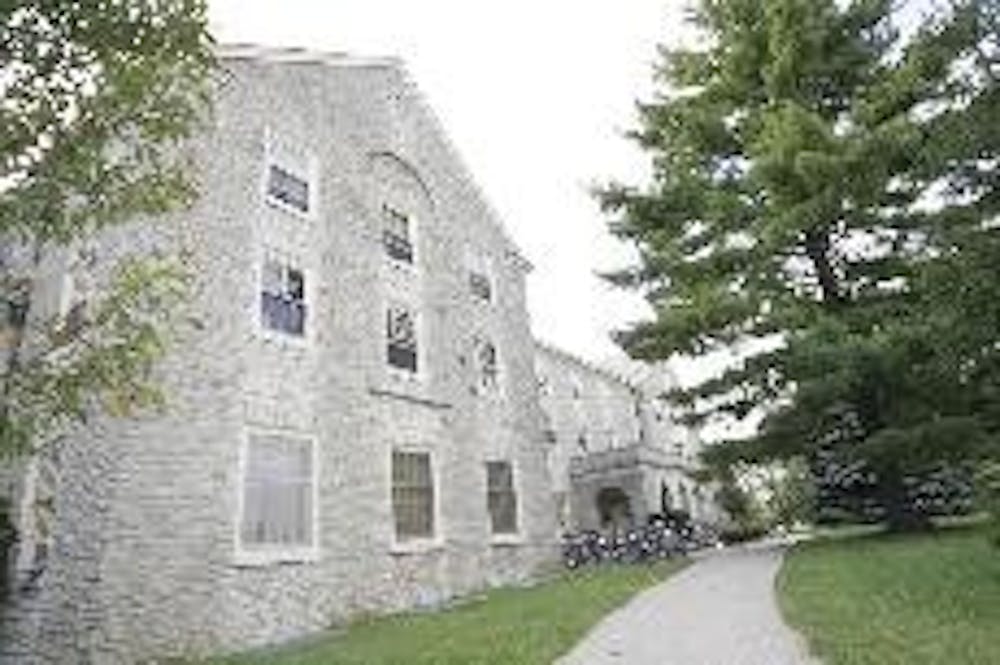
Clawson Hall is the current home to many of Miami's international students. (Michael Pickering)
Miami University's Office of Admissions is attempting to utilize a recently announced educational exchange program between the United States and Saudi Arabian governments as a way of building the international student population on campus, which currently includes no Saudi Arabian citizens.
Under the agreement reached between President Bush and the Saudi King Abdullah, as many as 15,000 new students may be arriving in the United States within the nest few years, many of them receiving full tuition reimbursement from the Saudi royal family.
David Keitges, director of international education at Miami, said that Saudi citizens who do not receive full tuition reimbursements might be attracted specifically to a university like Miami because of its relative affordability.
"Our out-of-state tuition is lower than that of most private colleges or universities," Keitges said, "but we have to be out there actively pursuing them."
Most Saudi students will be attracted to a university with an intensive English language program, said Aaron Bixler, director of international admissions for Miami. Since Miami does not have an English language program and since one does not seem to be on the immediate horizon, Bixler said the university is starting to learn how to best utilize the means it does have available.
"We're working on a possible partnership with the University of Dayton that would allow students to study English there for a year and then come to school here," Bixler said.
Miami does offer creative writing, linguistics, literature, technical and scientific communication as majors, but nothing specific to the English language.
While Keitges said that a number of Saudi students are attracted to coastal regions such as California and New England, Bixler said that Miami has an important part to play in the exchange program, since the Saudi government is especially interested in having students enroll in institutions in the Midwest to get the "full effect" of an education in America.
While Bixler cannot anticipate any specific numbers of Saudi students that might enroll at Miami, he said he hopes to see some on campus by fall 2007.
To combat any acclimation concerns that Saudi students might have while studying in Western cultures, Associated Student Government (ASG) is willing to adapt to meet any needs, whether it be through the creation of new student organizations or through applicable event programming, said John Woods, ASG vice president of management.
Enjoy what you're reading?
Signup for our newsletter
"One thing that I have learned in ASG is that we could be real effective if we get more money to work with from the university," Woods said. "That way we could offer a lot more programming."
Bixler specifically mentioned the Ramadan holiday, which began Sunday, as a potential point of concern for Saudi students who are also Muslim.
Since dining halls across campus open their doors at 7 a.m. and close at 7 p.m., students participating in the holiday will not be able to eat at campus dining halls during the month. According to custom, Muslims may only eat between sunset and sunrise during Ramadan.
Michael Stevenson, assistant to the president for institutional diversity, said that, because of differences like this, the unique perspectives of Saudi students would be welcome on campus.
"We have a lot of students here from traditional Christian backgrounds who might make a lot of assumptions," Stevenson said. "Because of this, any effort to attract Saudi students would be most welcome."
Keitges said that, while the program might be in large part an effort by the Saudi government to improve its world image in the wake of the current political situation, it is a great opportunity for Miami to continue to diversify its student body. Miami currently has 138 international students enrolled, and while the figure is an improving one, Keitges said that the university realizes its need to better its international recruitment process.
"Our students are going to work in a different, very global economy 30 years from now," Keitges said. "International education brings together groups of people who might not otherwise be in each other's presence."




